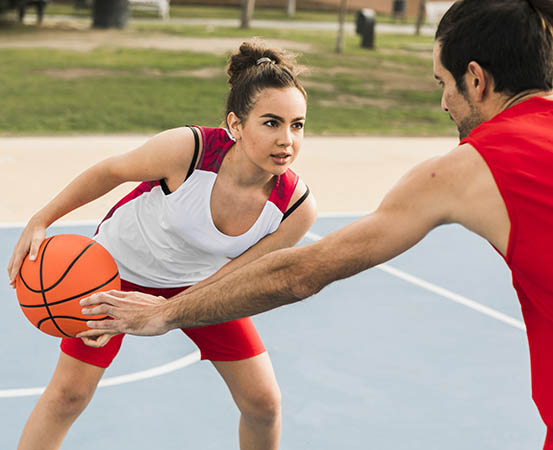
Reeth Abraham, a renowned athlete, has brought laurels for the country by winning medals at national and international championships. She became a role model for women in sports in the 80s, a time when very few women were venturing into sports. While her journey had its share of bumps, being resilient made her cope with all the challenges that came her way.
“Resilience is the ability of a person to bounce back and cope with difficult life situations,” says Shibili Suhanah, a psychotherapist from Kozhikode, Kerala.
READ MORE :
Women and sleep: Quality is as important as quantity
Self-care: It’s never too late
How to return to work as a new mom
Grey area: Why some women stop dyeing
Are women more resilient than men?
Several studies show that women score higher on the resilience scale than men. A study found that women outlived men during severe famines and epidemics. This survival advantage was found to be modulated by an interaction of biological, environmental and social factors.
Another 2013 study conducted by University at Buffalo found that females are more resilient to stress than males because of the protective effect of estrogen in the brain.
Dr Gayathri Deshpande, senior consultant, obstetrics & gynaecology, Nanavati Max Super Speciality Hospital, Mumbai, agrees that it’s a combination of factors that make a woman resilient. “The biological factors like hormones and social and environmental factors like being part of large families, contribute to building tolerance and resilience,” says Dr Deshpande.
According to Suhanah, women usually grow up with a space to express emotions and are open to seeking help, which helps them cope better with challenges. “Men are generally conditioned to maintain a tough exterior, not giving any vent to their feelings or asking for help,” she said.
Belonging to a family of sportspersons, sports was in Reeth’s genes. But it was also her passion and commitment that propelled her to her current stature.
From tasting victory in interschool sporting events, she soon made her foray into national as well as international sports and went on to win several medals in hurdles, long jump and heptathlon. However, the national hurdles champion faced several hurdles in her sporting career too.
Breaking records as a mother
Recalling her testing times, Reeth says that she transformed one of the biggest challenges into a high point in her career. “When I was pregnant with my first child, like most sportswomen of my time, I was determined to hang up my boots and put an end to my career. But, during the course of my pregnancy, I began rethinking my decision.”
“I realised that there was so much more I had to achieve as I hadn’t attained the goals I had set for myself as an athlete,” she says. Within a month of her daughter’s birth, she was back on the track, training.
“Within 10 months, I went on to win gold in long jump and hurdles at the national championship, becoming the first Indian woman to make a comeback post pregnancy and break records,” she says.
She served as an inspiration for other women, quashing the perception that motherhood was the end of a woman’s career.
According to Dr Deshpande, who is also one of the leading surgeons in India practicing Robotic-Assisted Surgery (a minimal access surgery, ensuring better clinical outcomes), “Women are much more resilient due to the changes that their bodies undergo during the course of their life.” She adds that rise in technology has reduced these instances of pain and misery, helping women heal faster.
Dr Deshpande also says that previously with surgery, the recovery period was relatively more, but now with a combination of multiple factors, including access to minimally invasive surgeries (like laparoscopic and robotic-assisted surgery), the recovery period is much lesser, which reduces the pain they feel.
“Finding newer modalities and solutions to reduce the pain and misery that they go through is what keeps me going,” says Dr Deshpande. In addition, there are multiple breakthroughs in medicine that have helped to reduce pain during procedures for women, she adds.
Reeth, who had a full-time job at a bank, says, it wasn’t easy juggling between work, home and training. “Money was a problem. Those days, despite being the best in the country and winning medals, we did not have any sponsors. It was pure passion that acted as a driving force. The monetary gains were meagre. The priority was to train hard and win medals for the country,” she says.
Keeping the passion alive
Reeth has kept her passion alive by participating in Master’s Athletic Championships. She is the current World and Asian Masters Champion in triple jump in her age category. “The urge to compete is still there. The butterflies in the stomach, the feel-good factor when you do well for yourself is very much alive,” she says.
Takeaways
- Research shows that women score higher than men on the resilience scale.
- A combination of biological and environmental factors lead to this gender difference.
- Estrogen present in the brain is found to contribute towards resilience in women.
- Women having more space and acceptance than men to express emotions and seek help can also help them to cope better with challenges.


















2 Responses
An apt article released on Women’s day .
Every hardship faced by me has made me stronger and more resilient.
Cheers to all the women Achievers .
Thank you for sharing your experience with us. We wish you the best of luck for all your future endeavors and would love to know more about your achievements and epiphanies.